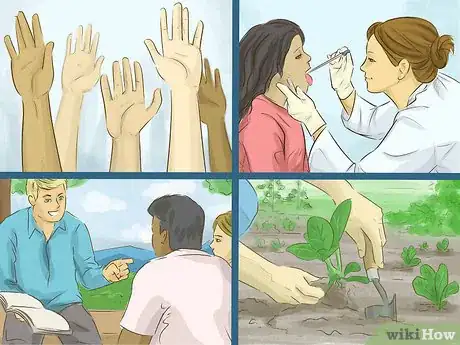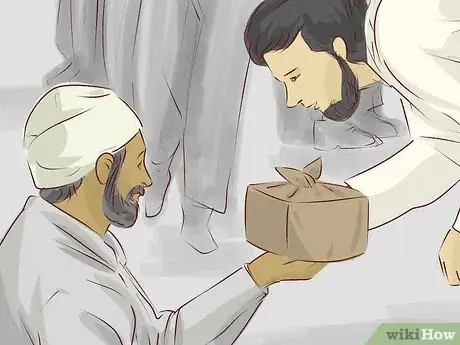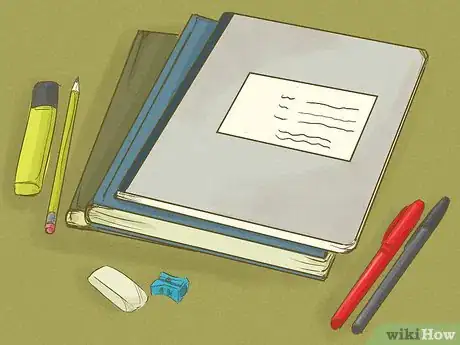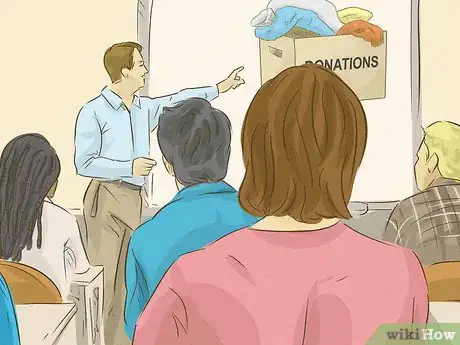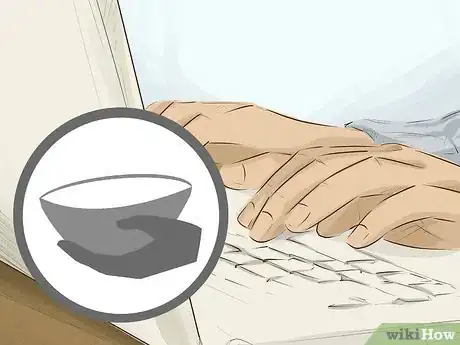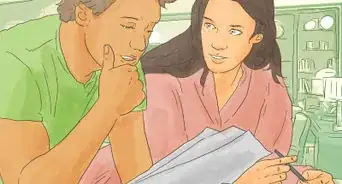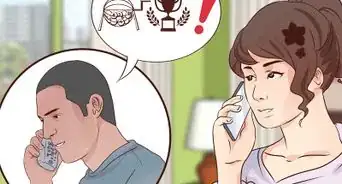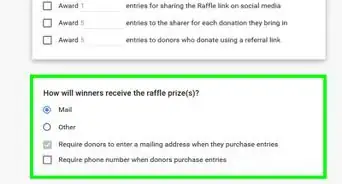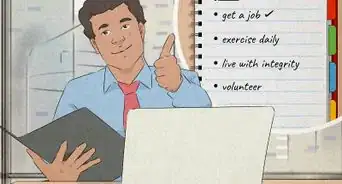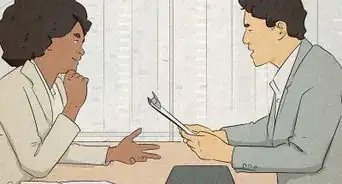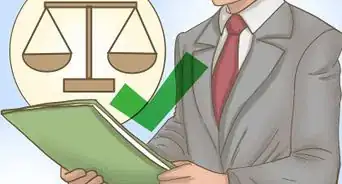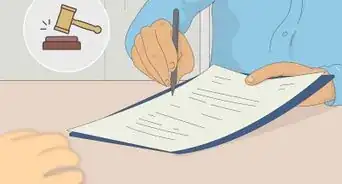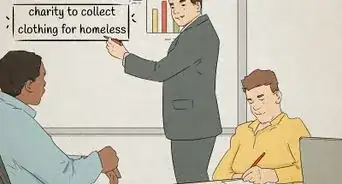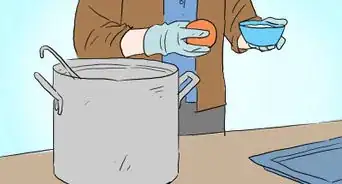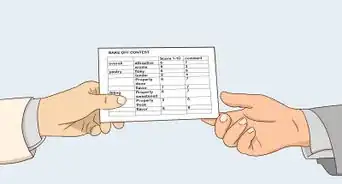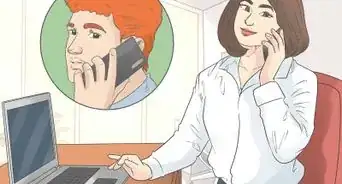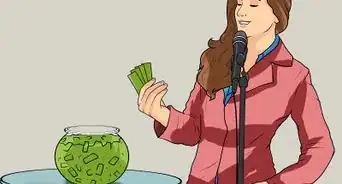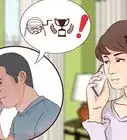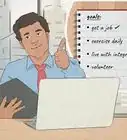This article was co-authored by Direct Relief. Direct Relief is an award-winning humanitarian aid organization, active in all 50 states and more than 80 countries. They focus on helping people affected by emergencies and natural disasters. Direct Relief has been highly rated by Charity Navigator, GuideStar, and the Center for High Impact Philanthropy at University of Pennsylvania, for their effectiveness, efficiency, and transparency.
wikiHow marks an article as reader-approved once it receives enough positive feedback. This article has 25 testimonials from our readers, earning it our reader-approved status.
This article has been viewed 458,409 times.
Poverty is a tragic condition that afflicts millions of people around the globe. Many struggle to obtain basic necessities and to provide for themselves and their families, yearning for a prosperous life free from the incessant distractions and anxieties of an impoverished way of living.
Fortunately, rates of extreme poverty are falling around the globe, and drastically so, thanks to the advent of government reforms/market liberalization.[1] As reassuring as it can be to remain conscientious of the significant progress occurring in our world, however, millions still remain under the poverty line; economic progress, while ongoing, is not inevitable, and still necessitates committed efforts as a society to ensure the welfare of all people. Nonetheless, there are numerous ways in which you contribute towards the cause of further eradicating poverty.
Steps
Helping the Poor Through Direct Action
-
1Volunteer. There are tons of ways to help out in your community through direct action. Ask at your local religious organization, or non-profit. Check out programs at your local library and see if they need assistance.
- There are many different groups that you can work with: children, the elderly, the mentally ill, the homeless, women. You'll need to decide which group you want to focus on.
- You can do things like teaching a course in resume development, computer skills. You could start up a local community garden and teach courses on how to grow sustainable food. A large number of people who are poor cannot afford to buy much produce, so teaching them a sustainable and cheap way to grow their own food, could help alleviate some of that vitamin deficiency.
- You can work in shelters, soup kitchens, community centers, at after-school programs, and employment centers.
-
2Help an individual. Even helping one individual can make a small change for the better. If you see someone who needs help, talk to them. Give them some money, even a few dollars can help. Offer your help without being condescending or judgmental.
- Try to help them find a place like a shelter or a soup kitchen.
- Ignoring the poverty around you, or making judgment calls about the people in poverty, is a surefire way to do nothing to help. You don't know how that person got into poverty and you don't know what they are going to use their money for.
- If you are afraid of what they are going to use your money for, you can offer them something (e.g. to buy food, give them a job, buy clothing, etc.). This way, you can make sure that they get what they need without using your money for something bad like weapons or drugs.
Advertisement -
3Educate yourself. There are many ways that poverty is linked to reproductive rights, to workers' rights, to environmental justice. By educating yourself, you will figure out where your time and energy is best spent in helping the impoverished gain the skills and the power they need to help themselves.[2]
- There is a good deal of research that shows how the cycle of poverty is linked to the criminal justice system, which does little to re-educate its felons. Especially in a country like the U.S. the downward spiral of prisoners fuels their poverty and is a system that must change. This toxic feedback loop is especially difficult for people of color, who are already usually disenfranchised by poverty and the structure of society today. [3]
- Reproductive rights are linked to poverty. Access to reproductive control, especially for women, means fewer children, which typically links to higher education and higher opportunities for work. Reproductive health programs mean fewer teenage pregnancies and better education for women.
-
4Donate. Donations to your local and global organizations are incredibly important. Many of these organizations rely on donations to survive and serve their communities. Make sure you know where your money is going if you're donating money. You want to be sure that the organization is actually helping people.
- Make a pledge to give up some treat for a month (like fancy coffee, or chocolate, or clothes shopping) and use the money that you save to donate to a local or global charity or non-profit.
- Other than money you can donate food, clothing, toiletry items, old furniture, toys and books to local shelters and programs. These donations help people in straitened circumstances.
- There is a variety of books for prisoners programs in various cities. See if your city or town has one. If not, maybe try to start one. Making sure that prisoners are getting the education they need (and often, have been denied) will help them to become productive members of society rather than stuck in the criminal justice system for the rest of their life.
EXPERT TIPDirect Relief is an award-winning humanitarian aid organization, active in all 50 states and more than 80 countries. They focus on helping people affected by emergencies and natural disasters. Direct Relief has been highly rated by Charity Navigator, GuideStar, and the Center for High Impact Philanthropy at University of Pennsylvania, for their effectiveness, efficiency, and transparency.Humanitarian Aid Organization
 Direct Relief
Direct Relief
Humanitarian Aid OrganizationUse social media to connect with people personally. Direct Relief, a humanitarian aid organization, says: "Thanks to social media, you're able to transfer money now to an individual far easier than you were able to before. The reason why Direct Relief and other nonprofits exist is we do something an individual can't do on their own, like warehouse and supply, medic aid, and scale. But now there are a number of platforms where you can give directly to a person who's affected."
Helping the Poor Through Activism
-
1Start or join an organization. Gather like-minded individuals and pick something to do with poverty to work to alleviate. Startup a group to help educate community members on poverty, or create an after-school program for low-income kids.
- Use your group to have a benefit concert. Put flyers around your town or city and try to get the local paper to cover it. Have the proceeds towards helping people in your community.
- Start a petition in your community to help low-income students have more nutritious food, or to make your school system adopt a better sex-education program.
- Programs like Results[4] and Children's Defense Fund[5] work locally and globally to support legislation and practices that particularly help children to overcome poverty.
EXPERT TIPDirect Relief is an award-winning humanitarian aid organization, active in all 50 states and more than 80 countries. They focus on helping people affected by emergencies and natural disasters. Direct Relief has been highly rated by Charity Navigator, GuideStar, and the Center for High Impact Philanthropy at University of Pennsylvania, for their effectiveness, efficiency, and transparency.Humanitarian Aid Organization
 Direct Relief
Direct Relief
Humanitarian Aid OrganizationBe cautious when donating online. According to Direct Relief, you need to do research before donating on a crowdfunding site. "Unfortunately, it's not very hard to create one of these pages and pretend to be someone you're not. It's just like anything else online—you need to take the extra steps to be diligent and make sure what you're supporting is legitimate. Check IRS filings and whether they're a registered organization with the government, as well as whether they abide by good business standards by checking with the Better Business Bureau."
-
2Take legislative action. Get involved in your local government and in your country's government. Pay attention to laws and bills that are being passed that impact programs to help people who are impoverished.[6]
- Support a health care system that protects and helps the people who are part of it. Many people, especially in the U.S. are forced into poverty because of a medical situation that they cannot afford.
- Support better education for your community and your country. Better education means people who have the life skills and the knowledge that help them realize their full potential and to become productive, interested members of their communities.
-
3Help create a dialogue about poverty. Simply opening up discussion in your local community, and on a global scale, can help work towards alleviating it. Challenge your friends and family's assumptions about poverty.
- Write a column for your local newspaper, or a letter to the editor, outlining what needs to be done in your community to help people who are poor.
Warnings
- Don't judge people who are in poverty. There are so many ways to fall into that hole and not be able to escape, encompassing but not limited to health problems, psychological problems, addiction, abuse, and many many more.⧼thumbs_response⧽
References
About This Article
You can help the poor by donating food, clothing, or toiletries to a local shelter or giving your old books to a books for prisoners program. You can also donate your time by volunteering in an community center or soup kitchen. To have a greater impact in your community, try joining an organization or starting a petition to help low-income kids in your community. To learn more ways to help the poor through activism, keep reading.
